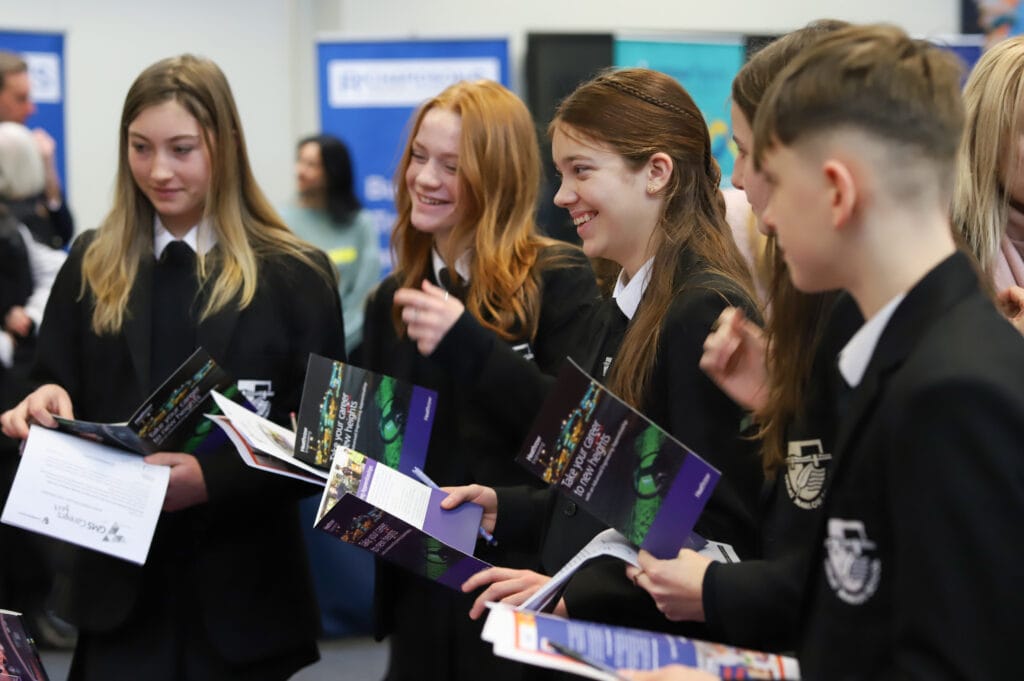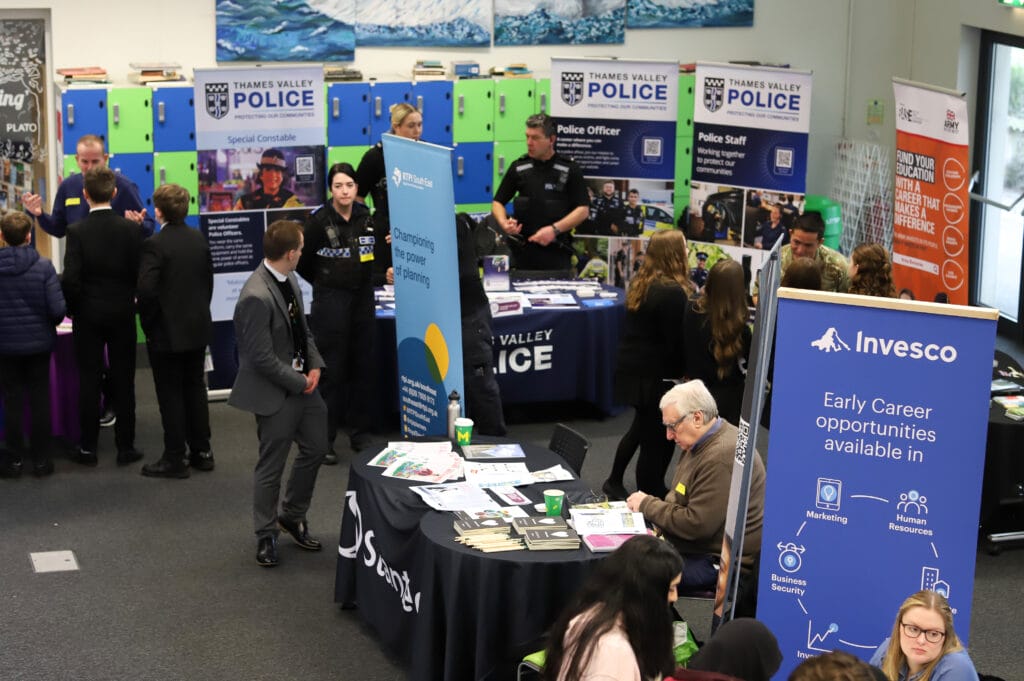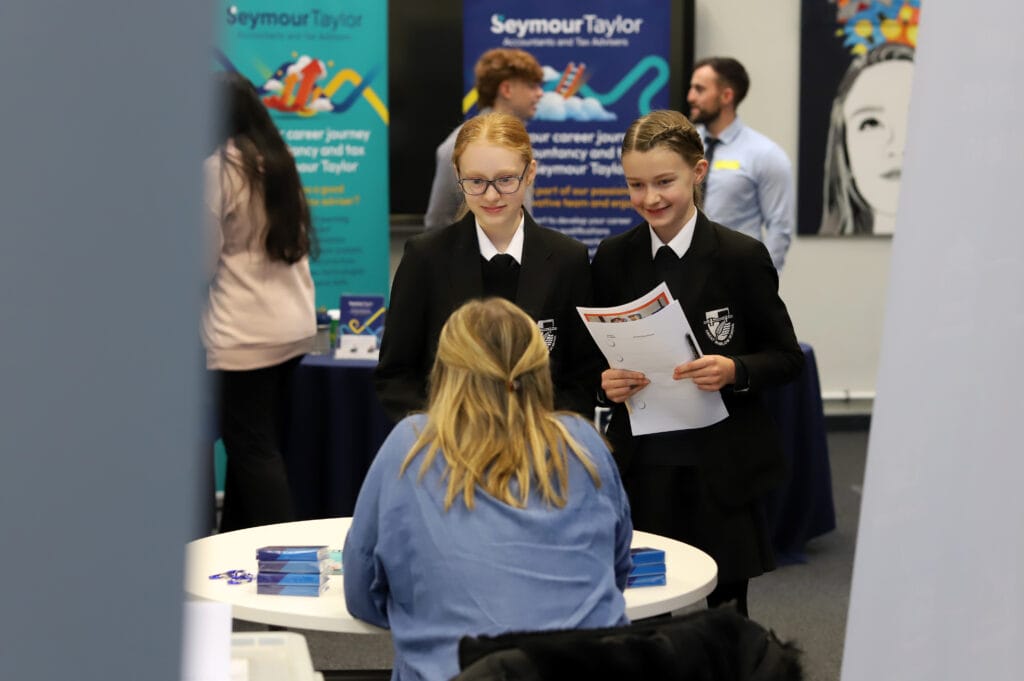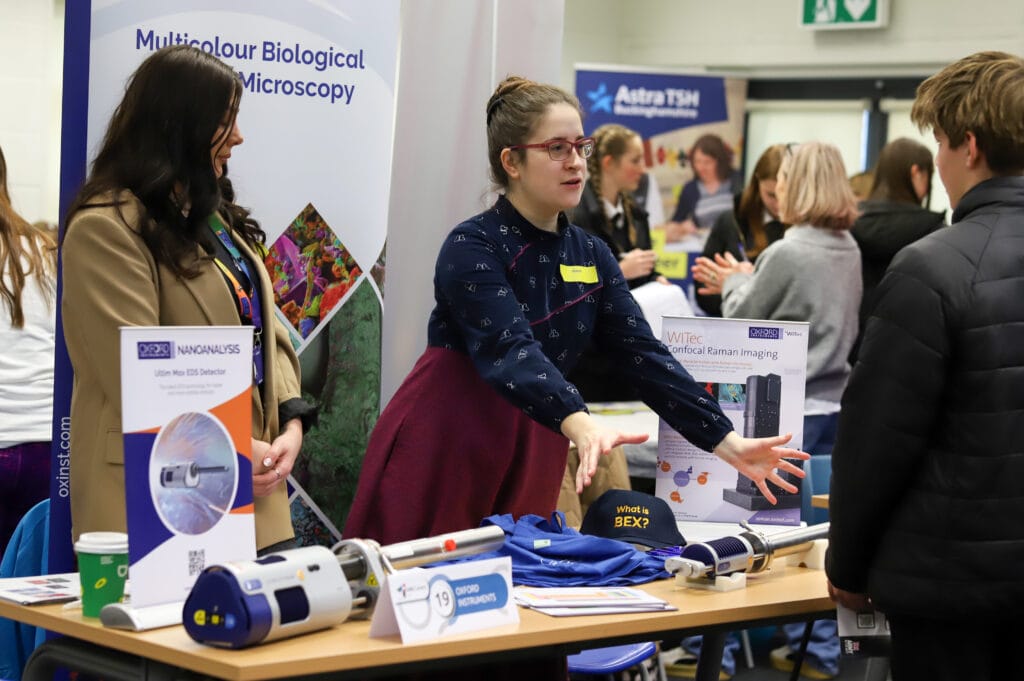Careers Programme
GMS cares about offering careers’ information that enables students to make informed decisions that enhance their employability prospects.
Career Resources for Students and Parents/Carers
Classroom to Careers June 2025
Choices Guide July 2025
National Careers Week
Unifrog
Bucks Skills Hub
Provider Access Policy
The Careers Team


Our Careers Leader is Mrs Maggie Brunt mbrunt@gms.bucks.sch.uk
Mrs Brunt is a qualified careers’ leader and advisor, registered with the Career Development Institute (CDI) as a Career Development Professional. Registration provides assurance that she is fully qualified, abides by the CDI Code of Ethics and regularly updates her skills and knowledge.
Students and parent/carers can make an appointment to speak to our Careers Lead via email.
Careers education at GMS is managed by Mr Owen Hollyman Head of Sixth Form ohollyman@gms.bucks.sch.uk
Careers Strategy and Vision
Great Marlow School believes that students should have access to careers’ education, advice and guidance. GMS has put in place access to information that helps students choose suitable pathways to careers’ options. The school believes jobs that offer personal, economic and sustainable employment will lead to successfully fulfilled lives.
Our intent is to encourage every student to work towards achieving their full potential by attaining the best qualifications while guiding them towards ambitious career pathways.
Staff, together with career advisors, work to raise student aspirations. There is a “Next Steps’ day in the Sixth Form Centre and a day when an ‘Interview Skills Workshop’ is organised. Sixth Formers are scheduled a time to go on a week’s work experience in July of Year 12.
- In KS4, Year 11 are scheduled with careers’ interviews, which begin in the autumn term and continue into the spring term
- In KS3, Year 9 students are given support when choosing their options for GCSE, culminating in a GCSE Option’s Evening in the spring term
GMS is proud that 100% of our students progress onto further and higher education, training, employment or apprenticeships.
CEIAG Programme
There has never been a time when Careers Education, Information and Guidance (CEIAG) has been as important as it is today. The landscape of education, training and employment opportunities that students need to navigate is more complex and more challenging than that faced by previous generations.
Our mission statement is for all students to achieve their personal best. In careers’ education, this translates to every student making the best choice to progress.
GMS aims to support students in making well-informed decisions by providing access to differentiated, impartial and independent information and guidance about the range of options (including academic, vocational, apprenticeships and jobs) that are most likely to help them to achieve their ambitions. By helping students with decisions at crucial stages, informing them of all their options, and introducing them to the world of work, GMS aims to prepare them for their career future, whichever pathway they choose.
Aims of Careers Education, Information, Advice and Guidance (CEIAG) at Great Marlow School is to:
- raise students’ aspirations and to broaden their horizons
- inspire and to empower students to make informed realistic decisions at key transition points in their learning
- provide good quality independent and impartial careers advice to students, which inspires them and motivates them to fulfil their potential
- provide advice and guidance in the best interest of the student
- provide opportunities to engage and work in partnership with employers, training providers, local colleges and other agencies
- provide opportunities to inspire students through encounters with employees
- develop enterprise and employability skills including skills for self-employment
- support inclusion, challenge stereotyping and promote equality of opportunity
- provide students in KS5 with the knowledge and inspiration to succeed in their chosen career paths.
The GMS Careers Map is found under the heading CEIAG Programme and sets out how GMS provides a careers’ programme throughout Key Stage 3.
The CEIAG programme is monitored and evaluated annually. Reviewing the CEIAG Programme takes account of the school’s Development Plan to ensure the programme continues to support the school’s aims. We aim to fulfil the Gatsby Benchmarks, the framework of eight guidelines that define careers’ provision in school and colleges.
Careers Fair
Great Marlow School has an annual careers fair. The school welcomes employers who wish to share their knowledge, experience and expertise with our students and offer guidance on career development. Please contact our careers’ leader Maggie Brunt on 01628 495832 or mbrunt@gms.bucks.sch.uk if you would like to discuss how we can work together.
Provider Access
The school welcomes visits from employers, training providers and further and higher education organisations.
Providers who wish to request access should contact the Careers Lead Mrs Maggie Brunt on 01628 495832 or mbrunt@gms.bucks.sch.uk
Partnerships
Great Marlow School works closely with local employers and employees, including parents, carers and alumni of the school, as well as further and higher education providers.
GMS is part of the Bucks Careers Hub, a partnership of local schools who support each other with their careers’ programmes.
GMS is also supported by the Bucks Skills Hub, a government funded agency designed to promote links between schools and businesses. The Bucks Skills Hub provides GMS with an enterprise coordinator and two enterprise advisors who are volunteer senior employees of local businesses.
Unifrog
Unifrog Careers' Platform
Unifrog brings information about all post-school opportunities, including every UK university course and apprenticeship scheme, into one place. This makes it easy for students to compare and choose the best opportunity for them.
This video provides parents/carers with an introduction to the Unifrog careers’ platform.
The Careers’ Library contains up-to-date labour market information for over 1300 different careers, with details about the required skills and qualifications for each one.
The Subjects’ Library gives advice about what qualifications are required to study a specific course at university.
Additionally, the platform helps students successfully apply for these opportunities by using Unifrog to write their applications, such as personal statements and CVs, and guiding them through the process, allowing teachers to give live feedback.
Students can record their key skills and achievements and build up an impressive portfolio over time.
Students access the platform by clicking a link in their welcome email, where they create a password and can begin using the platform. They can log in to Unifrog using their school email address and password and they can do so from any computer, tablet or smartphone.
GMS encourages parents and carers to use the platform with their child. Support through the process of deciding their next steps is important, for a parent/carer access code please email Maggie Brunt on mbrunt@gms.bucks.sch.uk
Labour Market Information
Why do I need to know about labour market information (LMI)?
While many young people face tough competition for jobs, many employers report difficulties in recruiting people with the right skills. The working world has changed fundamentally over the past generation, creating an employment challenge caused by the demise of the job for life, the emergence of the knowledge economy and the loss of many jobs due to technological and globalisation changes.
As society transitions to net zero and embraces artificial intelligence, the growth of industries and job roles will continue to shift. It is, therefore, important that both young people, their parents and carers are aware of the evolving nature of the labour market, and that young people are equipped to navigate a changing world.
Labour market information helps students to explore key aspects about a particular area of employment including:
- the sectors, industries and businesses that operate there
- the jobs that exist
- the number and type of job vacancies
- the sectors and businesses that are expected to grow in the coming years
- the travel to work patterns: ie the ways people commute to work from home.
- the kinds of skills which are emerging as needed
- pay and progression patterns
Careerometer is a free widget provided by the LMI to get access to labour market information
Bucks labour market and skills reports – for further information on what is happening in Buckinghamshire



